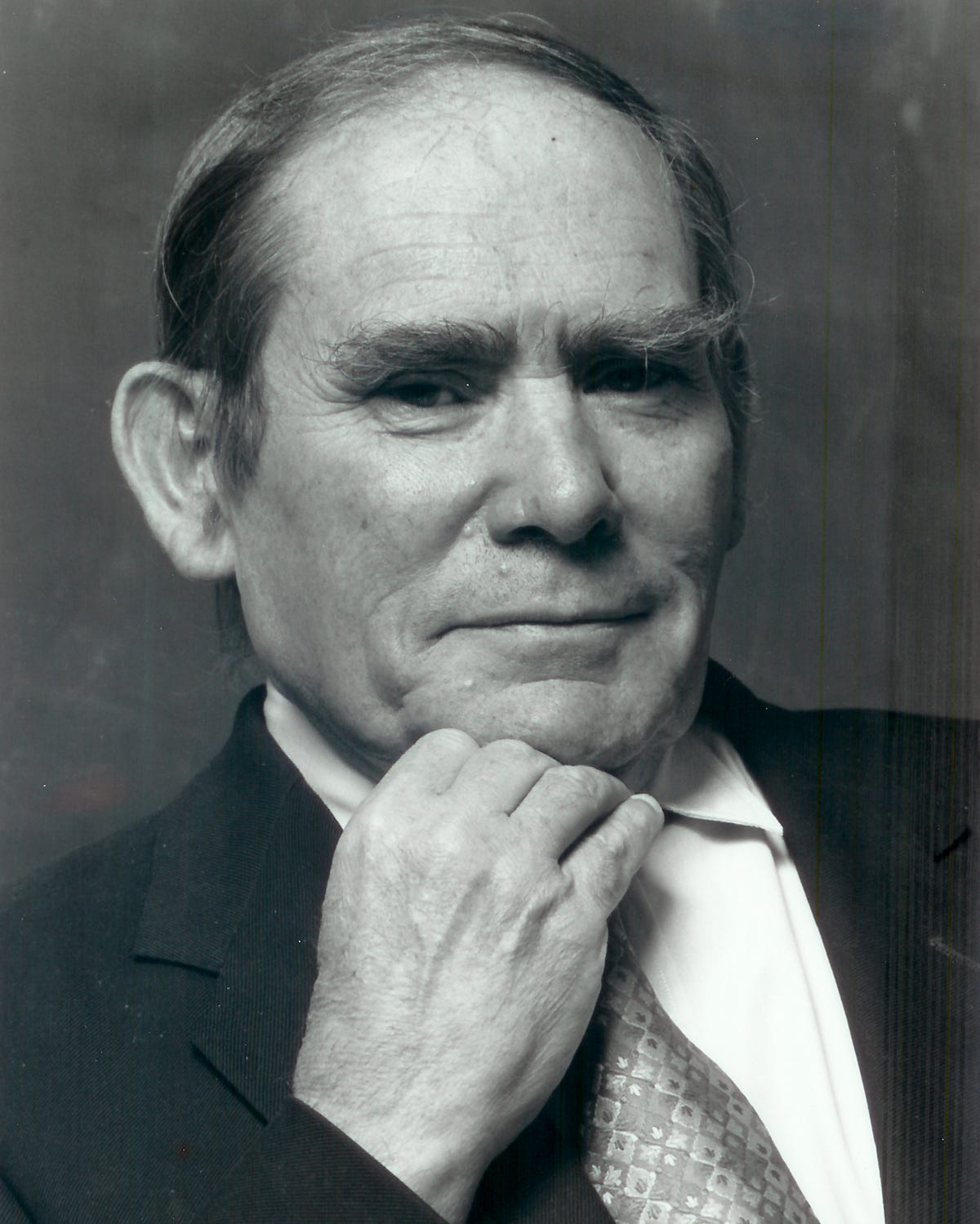Ochre Bio is named after one of our heroes: the late Nobel laureate, Sydney Brenner. During a long and successful career, the distinguished biologist discovered the three types of stop codons in genetic code: Amber, Opal/Umber, and Ochre. Sure, we could have gone for any of these, but none roll off the tongue quite like Ochre Bio, where we share the same firm belief as Brenner in the value of pragmatism, creativity and innovation in science.
Here’s one of our favourite Sydney Brenner quotes, which attests to these qualities:
“Progress in science depends on new techniques, new discoveries and new ideas, probably in that order. Innovation comes only from an assault on the unknown. I think one of the things about creativity is not to be afraid of saying the wrong thing.”
We’re certain this same belief will determine our progress towards meaningful medicines, a journey on which we live by three laws: Clarke’s, Murphy’s, and Wheaton’s.
Clarke’s Law
Author Arthur C. Clarke (best known for his novel 2001: A Space Odyssey) developed catchy laws on the nature of tech and discovery. The most widely quoted of these, is:
“Any technology sufficiently advanced is indistinguishable from magic.”
This observation, often referred to as Clarke’s Law shows us we must strive for the most advanced scientific ambition in everything we do. Ambition necessitates urgency. And so speed is an important element of how we work. We choose to fail fast. Here at Ochre, we strive to create science akin to magic, and that means stretching the boundaries of what was conceivable and accepting that failure will be a key component to achieving our bold ambition of being a new kind of biopharma company and improving human health at scale.
#ambition
Murphy’s Law
There exist a few theories on where Murphy’s Law originated, but wherever the adage came from, it holds that:
“What can go wrong, will go wrong.”
One of our team once said that biotech is “basically a set of small fires that need to be extinguished, and that’s just the journey.” So very true! We’ll give a pound to any scientist in the field who can honestly argue that Murphy’s Law doesn’t apply to them – a promise we’re positive won’t drain the company coffers any time soon!
At first glance, Murphy’s Law may seem incredibly pessimistic, but it’s really all about the ability to adapt to disruptions while operating at full capacity. We must simply plan carefully and have Plan Bs on hand for the inevitable failure and move on. When failure does occur we reflect as a team and integrate learnings from our failure into future plans. Resilience is critical for the journey.
#resilience
Wheaton’s Law
Wheaton’s Law, shared by actor Wil Wheaton at a gaming festival in 2007, is simple – and probably a little more colourful than our usual comms. Apologies to our grandparents as we say that the rule is:
“Don’t be a dick!”
In fact, the axiom is so simple that we’d love to end this section right here, but for the sake of context, we shan’t. Wheaton developed it while playing video games online, often against mouthy teens whose religion is cheek rather than sportsmanship.
At Ochre we mitigate situations by speaking uncomfortable truths in a non-confrontational way. We try to have positive intent in order to learnas much as possible from the setbacks and failures we experience. Using Wheaton’s law in these moments enables honest conversations and maintains trust and respect for the team. We always do our best to put the team’s interest above our own and be kind to one another.
